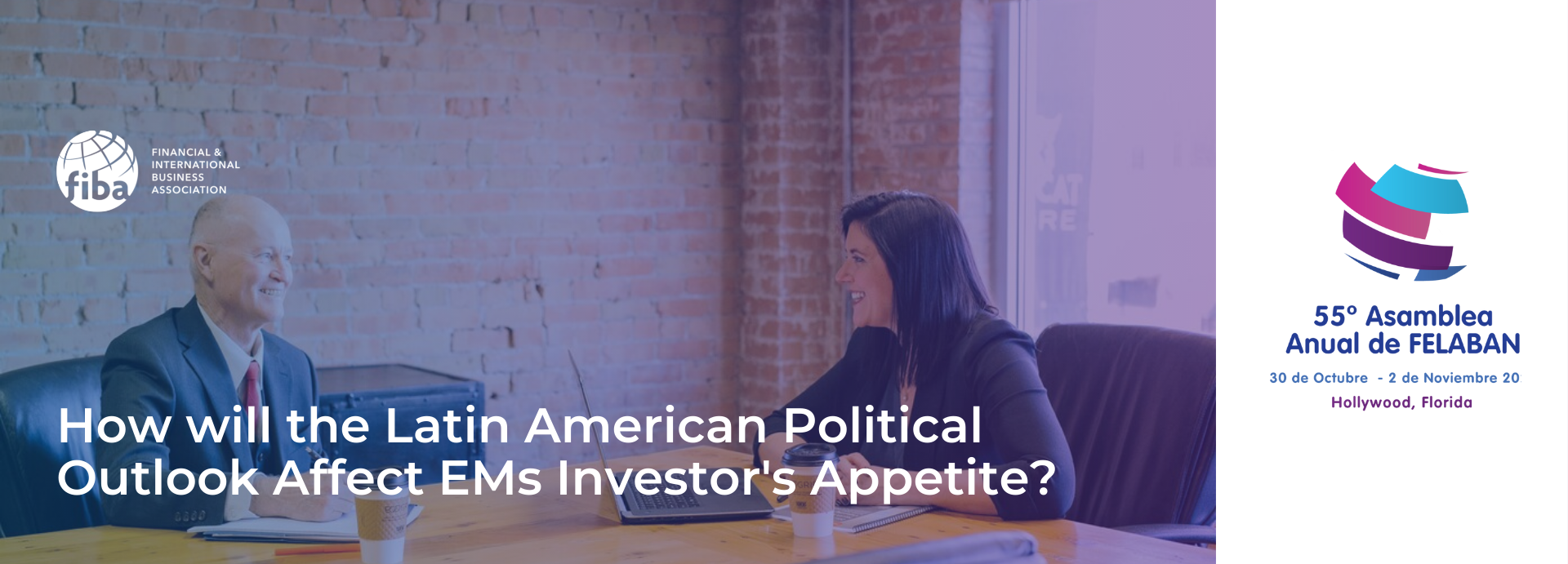In a world where US tapering will tighten financing conditions, which also has the potential to cause outflows from emerging markets, Robert Wood, Principal Economist Manager, Country Risk Service Latin America and the Caribbean at the Economist Intelligence Unit, believes the terms for most sovereign issuers should be quite manageable.
Plus, considering that external bond financing needs from governments will be moderate and that investors will be on the lookout for higher yields, he anticipates a supportive demand for Latam issuances.
In his opinion, “those countries that can show pro-growth reforms would sit well with market sentiment during this phase, but we are not too optimistic of improvements in the region in this respect, while much political capital will instead have to be spent on fiscal adjustments.”
Much of this depends on who sits in power and with elections coming to Chile next November, the economist believes that in the short term, all eyes will be on Chile, and then on the Constitutional reform process in 2022- “if these unexpectedly result in a shift away from pragmatic economic policies to something more radical that would unsettle sentiment towards Chile,” he said.
Wood also believes investor sentiment towards Colombia would be tested if Gustavo Petro were to win the mid-2022 elections “as this could hit the business environment and macroeconomic policy framework.”
In Brazil, next year promises to be a tumultuous one “given what is likely to be a polarizing left versus right presidential election and concerns over whether Mr. Bolsonaro will try to test the country’s institutions should he lose,” he said.
Woods believes that despite a poll advantage in favor of Lula, “it is too early to write off Mr. Bolsonaro.” In the meantime, he expects markets to closely monitor Lula’s campaign “to see whether he would undermine Brazil’s macroeconomic policy framework, including the public spending cap, which serves as an anchor on the country’s fiscal credibility,” and which in his opinion is already testing investor’s nerves.
The economist does not expect an overturn of the recently approved pensions, labor, central bank independence, structural reforms, “but a Lula government is unlikely to pursue the pending pro-growth reforms that the Bolsonaro government promised to carry out in 2018-22 but now seem unlikely until 2023 (tax simplification/ administrative reforms).”
Key issues like this, and other impacting Latin America, including US tapering and the financial institutions’ digital transformation journey, will be covered by Robert and his fellow panelists, Michael S. Hanson, Executive Director, and Senior Global Economist at J.P. Morgan and Marcos Urarte, CEO of Pharos, during their discussion at the 55th FELABAN Assembly. The hybrid experience will take place both online and in presence at Hollywood, Florida’s Diplomat Beach Resort, between October 30th and November 2nd.
Register now for the 55th FELABAN Annual Assembly and enjoy early bird pricing.
